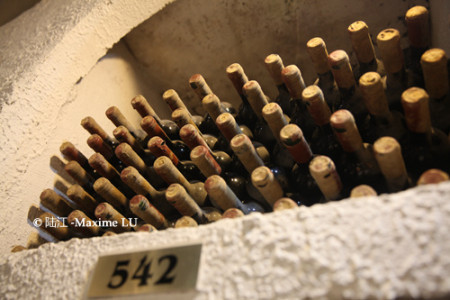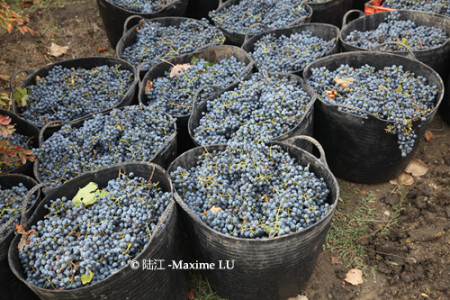摩尔多瓦-揭开面纱中的葡萄酒大国
-摩尔多瓦葡萄酒在华推广现状
陆江(Maxime LU)
本文已在【Prowine China】网站专栏登载,转载请标出处!
前不久,我应邀参加中国葡萄酒媒体团,访问了著名的东欧葡萄酒生产国摩尔多瓦。摩尔多瓦作为前苏联计划经济体系下的主力供酒国之一,是全球第十大葡萄酒生产国,葡萄种植面积为11.2万公顷,与法国波尔多产区面积相仿,有着悠久的葡萄酒历史。葡萄酒产业约有25万就业人口,产值占到3.2%的GDP总量,占出口比重约为7.5%。虽然只是个500万人口的内陆小国,不过葡萄酒方面却是颇具实力和潜力的大国。我们一行在当地访问不同产区的酒庄、葡萄园,还有独特的庞大酒窖景观,品鉴了很有代表性的各产区酒款,让我对摩尔多瓦葡萄酒的多样性、独特性和高性价比印象深刻,当然丰厚独有的葡萄酒旅游资源也是极具竞争力。
虽然上世纪90年代初苏联解体,摩尔多瓦仍然对俄罗斯为首的前苏联加盟共和国的葡萄酒市场有着极大的依赖。随着地缘政治的博弈加剧,摩尔多瓦地处罗马尼亚和乌克兰之间,成为欧盟和俄罗斯争夺的焦点之一。政治和外交对葡萄酒这项摩尔多瓦举足轻重的产业影响巨大,2006年摩尔多瓦葡萄酒就曾被俄罗斯全面拒绝,导致葡萄酒行业严重受挫,同期也激发的摩尔多瓦葡萄酒企业往外走的想法。当时在中国国内,我首次接触到的摩尔多瓦葡萄酒,就是著名的Cricova酒庄(2014 ProWine China 参展商),只是由于都是葡萄酒企业的个体商业行为,所以零星的摩尔多瓦酒企迈入中国市场,并没有形成合力,摩尔多瓦产酒国的形象在中国市场的认知是非常有限的,所以整体市场表现也并不尽如人意。
随着摩尔多瓦与欧盟逐渐走近,今年2014年6月27日,欧盟与摩尔多瓦在布鲁塞尔正式签署联系国协定,摩尔多瓦议会7月2日通过了联系国协定。俄罗斯为了施压再次全面禁止进口摩尔多瓦的酒类产品,这使摩尔多瓦葡萄酒行业意识到必须摆脱单一市场的依赖,要走向市场多样化,让酒类产品进入欧美、中国等市场。
现今,摩尔多瓦在保留自己的葡萄酒传统风格的基础上,逐渐在葡萄种植酿造、生产管理等方面与欧盟或国际标准并轨,为自己走向国际市场铺平道路。这次我们葡萄酒媒体团走访摩尔多瓦,就有亲身体会,举例说,有不止一家酒厂的工作人员向我们提到地理标识(GI)方面的保护,原来流行常用的一些欧盟保护的专用词,如Cahor,Cognac等,都已采用新的词汇代替。
中国作为世界上最富潜力的葡萄酒消费市场之一,自然成了摩尔多瓦葡萄酒的主要目标。今年就能明显感觉到摩尔多瓦在加大在华的市场推广力度。摩尔多瓦葡萄酒协会聘请了熟悉中国本地葡萄酒行业的专业公关团队,还安排中国的葡萄酒媒体走访摩尔多瓦葡萄酒产区。
尤其特别要提到的是,在今年下半年中国大陆最有影响力的酒展ProWine China中,摩尔多瓦葡萄酒协会首次组团参加中国大陆酒展,以集体的形象向大陆买家和其他各类专业人士展现自己的特点和优势。其中展商不乏一些我在摩尔多瓦走访过,颇具实力的酒企如Asconi ,CRICOVA,Chateau Vartely,Fautor,Migdal-P,Purcari。本届酒展里还有重头戏,就是请到了在亚太区颇有声望的Debra Meiburg MW 在这个展会期间主持了五场关于摩尔多瓦葡萄酒的专题大师班研讨会(Seminar)。这为摩尔多瓦葡萄酒的专业品质,国际化形象的建立,都有积极推动作用。虽然从现阶段来说,仍处在一个市场推广的初级阶段,还没有那么多立竿见影的收效或回报,但是现在大家对摩尔多瓦葡萄酒的认知逐渐在开始建立,这也是开拓新兴市场的有效必要路径。
当然为了达到摩尔多瓦葡萄酒在中国能广泛打开市场的目标,还需要国家层面支持的葡萄酒协会的持续努力。包括继续坚持对不同传播渠道的有计划持久的推介,尤其是传播精准迅速的新媒体,还有葡萄酒教育方面的推广合作,与业内的KOL意见领袖保持联系和互动,以及积极参加有影响力的大陆酒展,如ProWine China等。
摩尔多瓦葡萄酒继续秉承自有的优势,在持续的推广努力下,相信在不久的将来会在中国市场得到业内人士和消费者的认知认可,并获得丰硕的市场回报。
作者: 陆江(Maxime LU)
– 国际国内葡萄酒大赛专家评委,独立酒评人,美食美酒旅游类撰稿人,万欧兰葡萄酒教育首席讲师,资深葡萄酒收藏顾问。
【欢迎搜索:“万欧兰葡萄酒俱乐部” 或“wineclos”,关注我们公众号,或者扫描下方图形二维码。我们这里有国际国内热点的葡萄酒资讯和专家观点,还有有趣好玩的美食美酒旅游活动。】
最新品酒会活动:
[活动预告]2015-01-11,万欧兰葡萄酒俱乐部系列127,”葡萄牙国酒波特和著名品牌”
http://www.wineonline.cn/club2015-01-11pre.htm
Ongoing Promotions of Moldova Wines in China
Recently, I was invited to join a Chinese media delegation of wines to visit Moldova, the well-known East European wine producer. As a leading wine supplier of the former Soviet Union with the centrally planned economy, Moldova is the world’s No.10 wine producer and has a long history of wine production. The country’s wine-growing regions cover an area of 112,000 hectares, about the same as that of Bordeaux, France. Around 250,000 people are employed by the wine industry, the output value of which accounts for 3.2% of the country’s GDP and about 7.5% of the export volume. With a population of only 5 million, the small land-locked country boasts of solid strength and huge potential in wines. We visited chateaus and vineyards and unique large wine cellars and tasted signature wines in various wine-growing regions. I was deeply impressed by the diversity, individuality and high cost performance of Moldovan wines. Moreover, the country’s abundant and unique wine tourism resources are really competitive.
Despite the collapse of the Soviet Union in the 1990s, Moldova was once excessively dependent on the wine markets of former Soviet Republics led by Russia. Due to intensifying geo-political games, Moldova, lying between Romania and Ukraine, has been coveted by the EU and Russia. Politics and diplomacy have a huge influence on its decisive wine industry. In 2006, Russia banned imports of Moldovan wines, severely striking Moldova’s wine industry and motivating its wineries to go global. My initial impression on Moldovan wines was established by learning about the renowned Cricova Chateau (exhibitor of ProWine China 2014). At that time, no synergy was generated by a handful Moldovan wineries. Few Chinese consumers recognized the image of Moldova as a wine producer, resulting in the country’s poor market performance.





